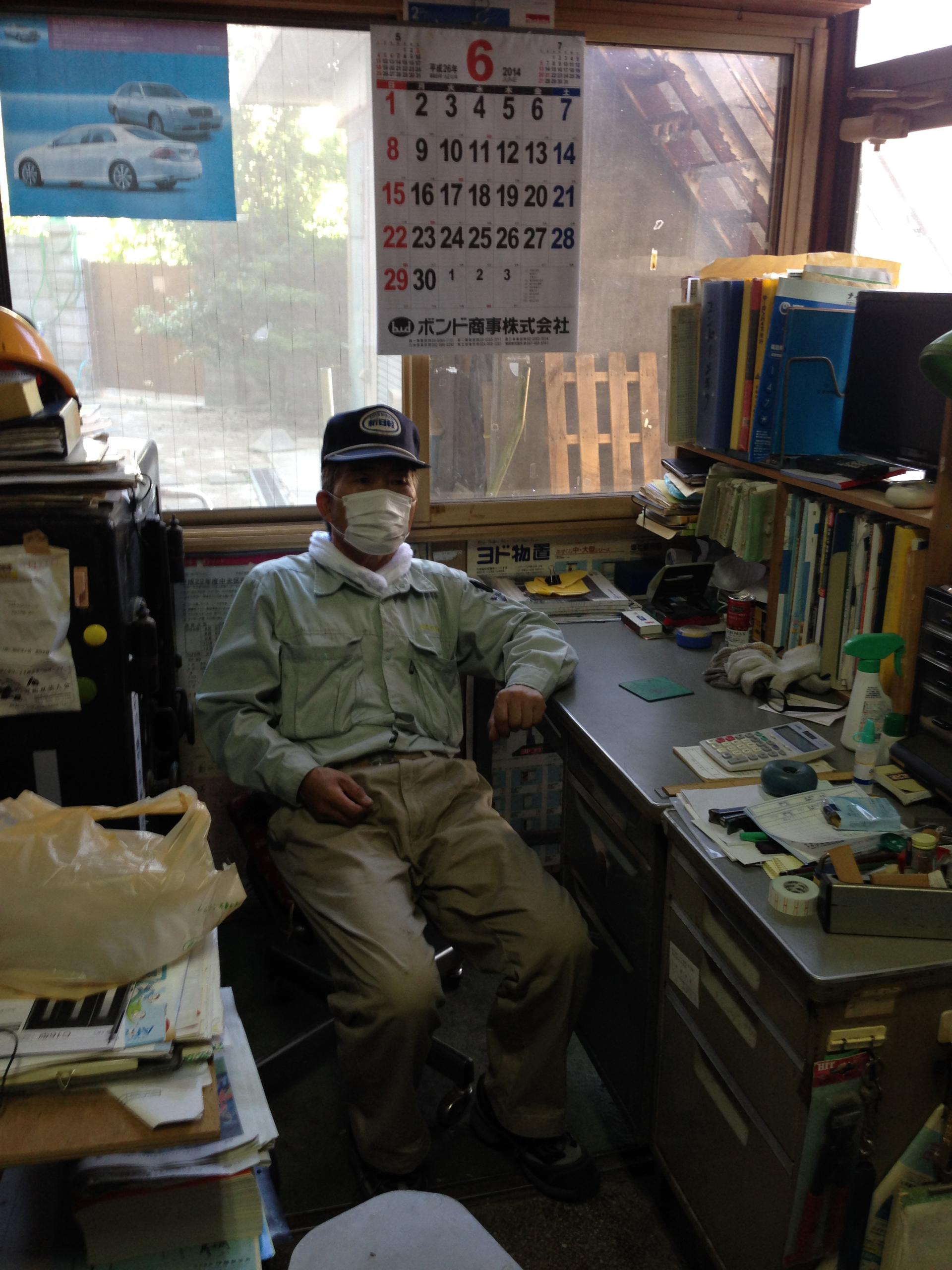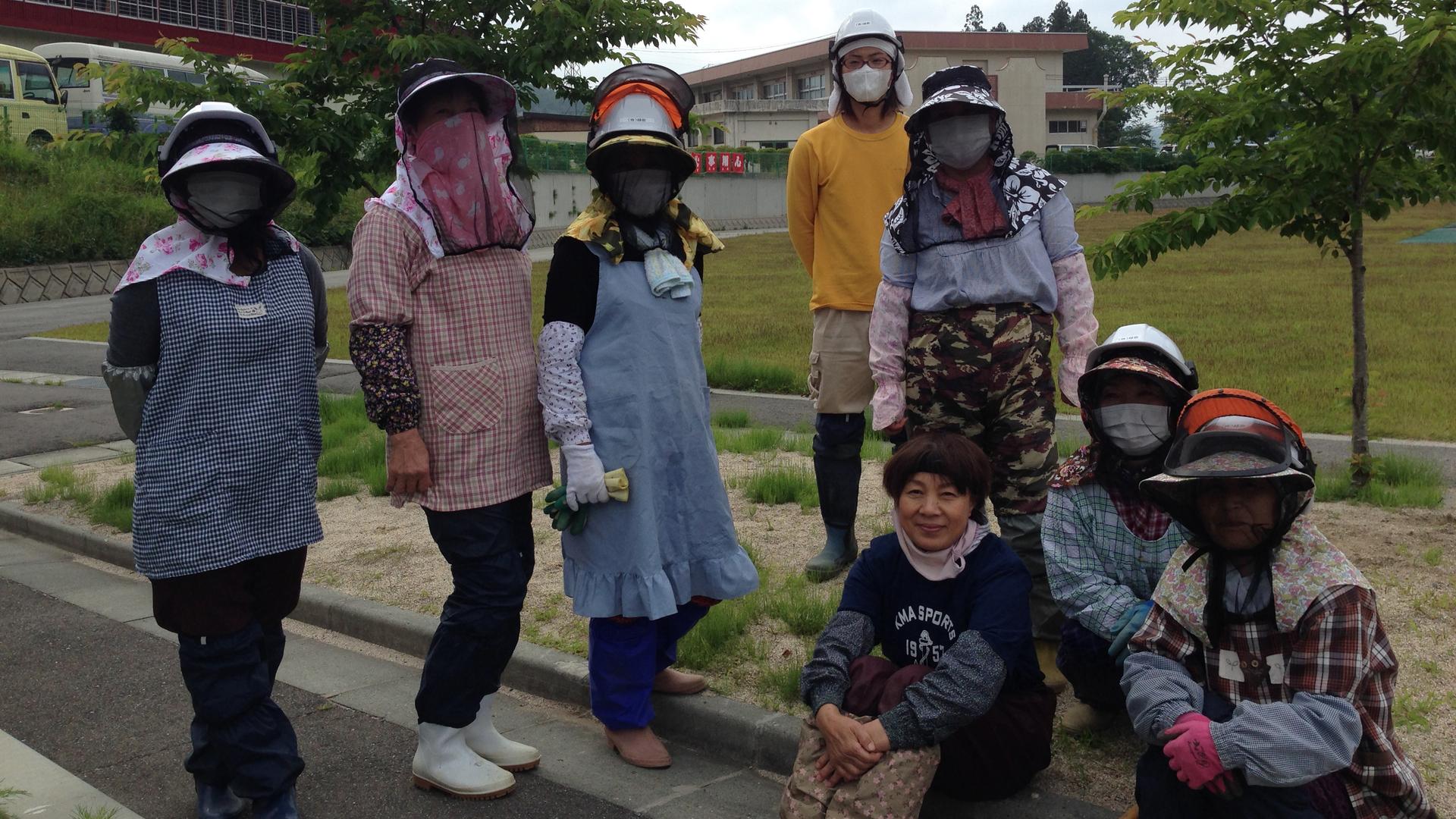Not everyone wants the clean-up in Fukushima to be over
These residents have been given temporary jobs maintaining public places.
The only retail shop that's open in the Japanese town of Tomioka is a hardware store. It has that hardware store smell — old dust, garden mulch, machine oil. But there are no shoppers.
There is one man in the back, though: Shizuo Suzuki, the owner. He’s sitting at a cluttered desk, wearing a button-down shirt, a towel around his neck and a white paper mask. It's for the radiation, he says.
Tomioka is one of the towns nearest to the Fukushima Daiichi nuclear reactors, the ones that suffered heavy damage and leaked radiation in the aftermath of the 2011 Tohoku earthquake and tsunami. Three years later, the clean-up is still going, and there are thousands of decontamination workers deployed across Fukushima prefecture.
In towns like Tomioka, they are basically the only people you see — there is still too much radiation in Tomioka for people to return. Even the clean-up workers have to leave by mid-afternoon to limit their exposure. You can see crews of them around town in the middle of the day, weed-whacking, raking up topsoil and filling large black plastic bags with debris. If not for the their white helmets and paper masks, it would look like normal yardwork.
What is left of the local economy now caters to the workers. In Hirono, the next town over, they pour into the convenience store at noon to buy cups of noodle soup and onigiri — rice balls. They're Suzuki's only customers

“People were really surprised I reopened the shop,” Suzuki says, pointing out rakes, trowels and other decontamination supplies. “I only did it to help the decontamination workers and do my part.”
The clean-up economy has even brought in some new businsses. Masami Takahashi runs a hotel called “Value The Hotel.” “We just opened last year,” he says. “We heard there was a demand so we came.”
The company has built five other hotels in Fukushima. Takahashi says almost every single guest is part of the clean-up effort. “The workers come from Hokkaido [in the north] all the way to Okinawa — the whole country,” he says. “You can see the different license plates on the cars outside. It's a little community — more like they are living here than just working.”
The Japanese government says clean up will be completed by 2017, but Takahashi expects it will take longer. “We don't know how long clean up is going to take,” he says, “but it is going to be a very long time. So as long as people need us, we'll be here.”
There are plans to build a storage facility nearby for the decontamination waste. Right now, though, the waste just sits in black plastic bags stacked out in the open. You can see the towers of radioactive debris throughout Fukushima.
The workers also need a place to eat, which is why Junji Oshida came back. His family opened an eel restaurant in Tomioka in 1868, and they ran it continuously until the earthquake. But when it hit, the building was heavily damaged and they lost their famous eel sauce.
You can’t replace that sauce, Oshida says — literally. It was a batch the family had been adding ingredients to for 150 years. Oshida didn’t know what to do without it.
After a few months, he got an idea. Oshida realized a lot of workers were going to come back to the area to clean and rebuild. Why not use the eel sauce on pork and make a lunch restaurant?
His new restaurant is just outside of Tomioka. The pork sauce is similar to the old eel sauce, Oshida says, but it will never be exactly the same.
That's how Suzuki, the hardware store owners, feels as well. He's in his 60s and plans to retire in five years, but says he won’t stay in Tomioka. “I need to visit the graves of my ancestors at least four times a year," he says. But otherwise? “I'm not going to live here again."
